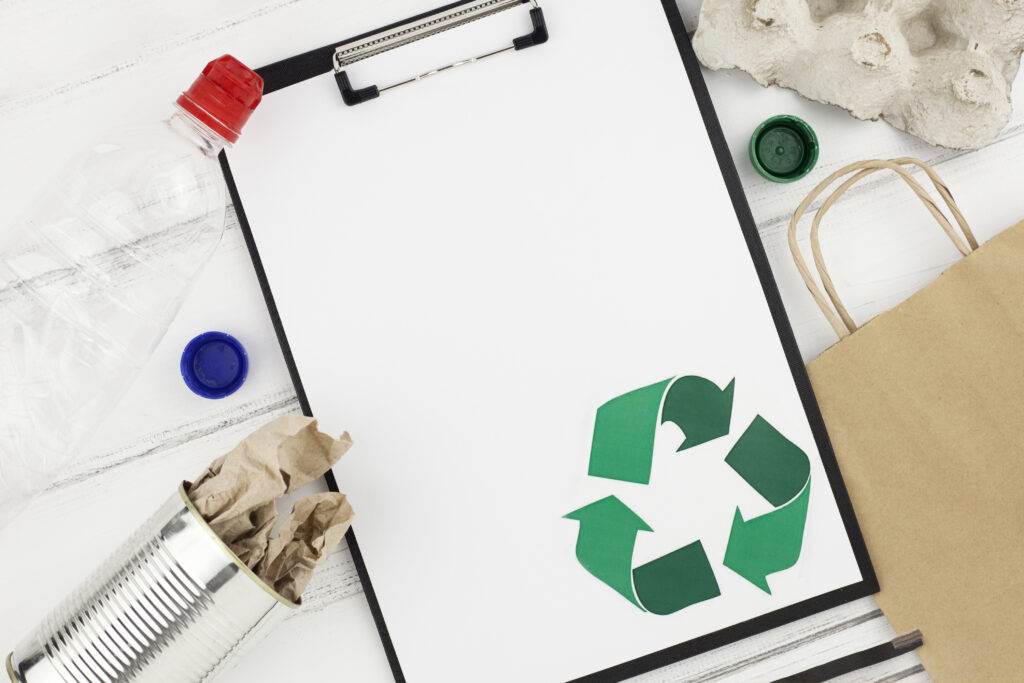Introduction to Waste and Recycling Management in Facility Care
In today’s world, effective waste and recycling management is crucial for facility care professionals aiming to maintain sustainability and declutter their operations. Understanding the best practices in waste disposal and recycling can significantly enhance a facility’s overall efficiency and reduce its environmental impact.

Understanding the Impact of Improper Waste Management
Improper waste management can lead to serious repercussions, both environmentally and legally. Facilities that do not effectively manage waste risk contributing to pollution, health hazards, and hefty fines. Waste breakdown can leach harmful chemicals into the soil and waterways, damage local ecosystems, and jeopardize community health. Moreover, non-compliance with regulations can result in significant financial penalties and damage to a facility’s reputation. Understanding these consequences emphasizes the importance of implementing a robust waste management system.
Benefits of Proper Recycling Practices
Proper recycling practices contribute to reduced waste, conserve natural resources, and lower operational costs. Facilities that adopt effective recycling protocols can minimize the volume of waste sent to landfills, leading to a substantial decrease in disposal fees. Additionally, recycling helps in reintroducing valuable materials back into the production cycle, which can reduce the demand for new resources. By engaging in recycling, facilities not only exhibit corporate social responsibility but also promote a sustainable culture within their organizations, encouraging employees and stakeholders to participate in eco-friendly initiatives. Ultimately, the adoption of effective waste and recycling management practices can spotlight a facility’s commitment to environmental stewardship.
Environmental Benefits of Waste and Recycling Management
Reducing Greenhouse Gas Emissions
Effective waste and recycling management plays a pivotal role in mitigating greenhouse gas emissions. By minimizing the amount of waste sent to landfills, facilities can significantly cut the methane emissions produced as waste decomposes. Landfills are a major source of methane, a potent greenhouse gas that contributes to climate change. Additionally, recycling materials such as metals, paper, and plastics typically consumes less energy compared to producing new items from raw materials. This reduction in energy consumption leads to decreased fossil fuel emissions, further supporting efforts to combat global warming. Emphasizing the importance of waste and recycling management, organizations can contribute to a healthier planet.
Conserving Natural Resources
Another critical advantage of effective waste and recycling management is the conservation of natural resources. Recycling enables facilities to reclaim valuable materials, which can be reprocessed into new products. For instance, recycling paper reduces the need for virgin timber, thereby protecting forests and promoting biodiversity. Similarly, recycling metals and plastics decreases the demand for mining and drilling activities, which can be environmentally damaging and resource-intensive. Facilities that prioritize recycling demonstrate their commitment to sustainability and help preserve ecosystems for future generations. Ultimately, the adoption of proper waste management practices fosters environmental stewardship and encourages other organizations to follow suit, paving the way for a more sustainable future for all.

Economic Advantages of Effective Waste Management
Cost Savings through Recycling Initiatives
Implementing effective waste management practices can lead to significant cost savings for organizations. By adopting recycling initiatives, businesses can reduce the expenses associated with waste disposal. Landfill fees can accumulate over time, especially for organizations generating substantial waste volumes. By diverting materials away from landfills through recycling programs, facilities can lower their waste management costs. Additionally, organized recycling efforts may reveal opportunities to streamline operations and improve efficiency, ultimately reducing overall operational expenditures. Companies that recognize the financial benefits of waste reduction and recycling practices can enhance their bottom line while demonstrating their commitment to sustainability.
Revenue Generation from Recyclable Materials
In addition to cost savings, effective waste and recycling management can create revenue-generating opportunities. Many businesses are able to sell their recyclable materials to processing centers, which can convert these materials into new products. For example, scrap metals, plastics, and paper can all be sold for reuse, translating into tangible income for organizations. By establishing partnerships with local recycling facilities, businesses position themselves to capitalize on these financial incentives. Not only does this generate additional revenue, but it also aligns with a broader commitment to environmental stewardship. As awareness surrounding sustainability grows, companies actively engaging in recycling initiatives can enhance their market reputation, attract environmentally-conscious consumers, and potentially increase their market share. Overall, prioritizing effective waste management is a sound business strategy that positively impacts both the environment and the economy.
Health and Safety Implications of Proper Waste Disposal
Prevention of Hazardous Waste Exposure
Proper waste disposal practices are essential for preventing exposure to hazardous materials that could pose serious health risks to employees and the surrounding community. Organizations that continuously monitor and manage waste effectively ensure that harmful substances, such as chemicals, sharps, and electronic waste, are handled and disposed of in compliance with regulatory standards. This proactive approach minimizes the likelihood of environmental contamination and employee exposure to toxic elements. Companies that prioritize proper waste disposal not only adhere to legal requirements but also foster a culture of safety, leading to a healthier workplace.
Promoting Occupational Health in Facilities
In addition to mitigating hazardous waste exposure, effective waste management practices promote overall occupational health within facilities. By maintaining cleanliness and orderliness, organizations reduce the risk of accidents and injuries related to slips, trips, and falls. Properly managing waste can also decrease the presence of pests and pathogens, which can hinder employees’ well-being. Furthermore, businesses that offer training on safe waste handling further enhance worker protection and engagement. By ensuring their workforce understands best practices and procedures, organizations create a supportive environment that prioritizes health and safety. Overall, companies that commit to effective waste management and disposal practices significantly contribute to the well-being of their employees and the community while reinforcing their commitment to responsible corporate governance and sustainability.

Regulatory Compliance in Waste Management
Understanding Legal Requirements
Regulatory compliance in waste management is not just a matter of adhering to legal obligations; it is also a crucial aspect of corporate responsibility and environmental stewardship. Organizations must familiarize themselves with local, state, and federal regulations regarding waste disposal, which vary by jurisdiction and type of waste. This knowledge allows companies to implement industry-specific standards and practices, ensuring that they handle and dispose of waste in a manner that meets or exceeds legal expectations. Failure to comply with these regulations can result in significant financial penalties, legal repercussions, and damage to the organization’s reputation. Therefore, understanding legal requirements is foundational for fostering trust and accountability in waste management practices.
Implementing Best Practices to Ensure Compliance
To achieve compliance with the myriad of regulations governing waste disposal, organizations must adopt best practices tailored to their specific operational needs. This includes conducting regular audits of waste management practices, tracking waste types generated, and ensuring proper categorization and labeling of hazardous waste. Additionally, companies should establish and maintain relationships with licensed waste disposal vendors who are well-versed in compliance requirements. Ongoing employee training regarding waste management protocols is equally vital, empowering workers to recognize the importance of proper disposal methods. Furthermore, implementing an effective waste tracking system enables organizations to monitor waste disposal practices accurately, ensuring alignment with regulatory mandates. Through these proactive measures, businesses can fulfill their legal obligations while minimizing environmental impact and protecting public health.
